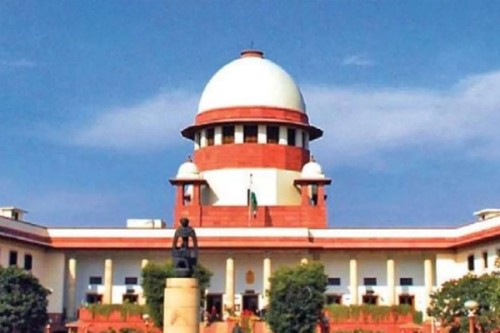SC Constitution Bench holds its judgment taking immunity against arrest will apply retrospectively

New Delhi, Sep 11 (IANS) A five-judge Constitution Bench of the Supreme Court on Monday held that its earlier judgment striking down the immunity given to senior public officials against arrest in corruption cases will have retrospective application.
The unanimous verdict, authored by Justice Vikram Nath, laid down that the struck down provision, which mandated the Central Bureau of Investigation (CBI) to obtain mandatory approval from Centre to arrest officers of the level of Joint Secretary and above who are booked under the Prevention of Corruption Act, 1988, was a part of the procedure only and did not constitute any new offence.
The Constitution Bench, also comprising Justices S.K. Kaul, Sanjiv Khanna, Abhay S. Oka and J.K. Maheshwari, said that Article 20 of the Constitution will have no bearing on its earlier decision reading down section 6A (1) of the Delhi Special Police Establishment Act, 1946.
Article 20(1) of the Constitution provides that a person cannot be convicted of any offence except for violation of the law in force at the time of the commission of the act charged as an offence.
In simple terms, it means that if an act is not an offence at the date of its commission, it cannot be an offence at a later date subsequent to its commission.
In 2014, a five-judge Constitution Bench had struck down this section 6A (1) for offending the right to equality.
The judgment did not explicitly lay down as to whether the decision of the Supreme Court will extend to those cases of corruption which were registered by the CBI against senior officials before the provision granting immunity was struck down.
In 2016, a reference was made to a larger bench by a two-judge bench to examine if the judgment of the Supreme Court taking away the immunity given to officers of the level of Joint Secretary and above against arrest in relation to corruption charges will have retrospective application.
Now, the Constitution Bench laid down that the Section 6A(1) of the Delhi Police Special Establishment Act, 1946 is held to be not in force from the very time it was inserted in the statute back in 2003.

|

|

